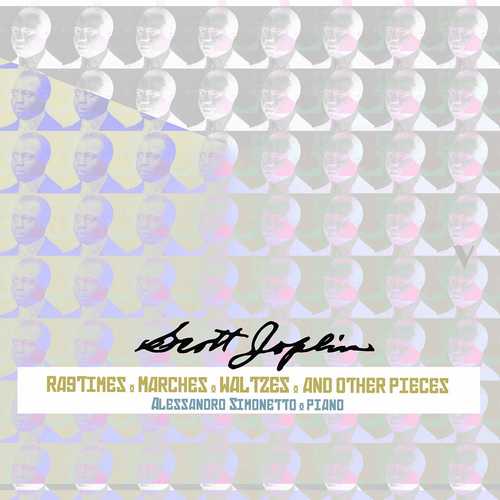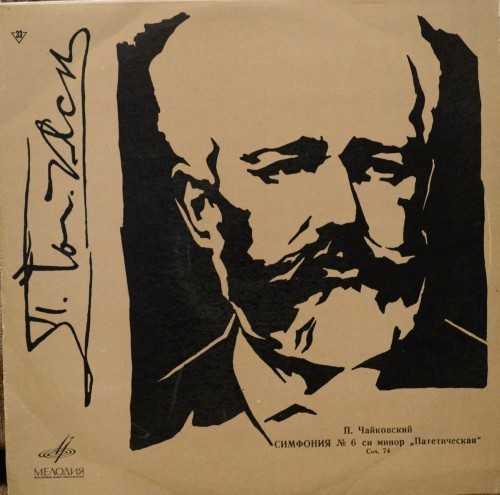
Composer: Scott Joplin, Scott Hayden, Arthur Marshall, Louis Chauvin, Joseph Lamb
Performer: Alessandro Simonetto
Format: FLAC (tracks)
Label: OnClassical
Release: 2019
Size: 3.34 GB
Recovery: +3%
Scan: cover
Scott Joplin:
01. Great Crush Collision
02. Original Rags
03. Harmony Club Waltz
04. Combination March
05. Maple Leaf Rag
Scott Joplin, Scott Hayden:
06. Sunflower Slow Drag
Scott Joplin:
07. Augustan Club Waltz
Scott Joplin, Arthur Marshall:
08. Swipesy Cakewalk
Scott Joplin:
09. Peacherine Rag
10. The Easy Winners
11. Cleopha
12. The Strenuous Life
13. A Breeze from Alabama
14. Elite Syncopations
15. The Entertainer
16. March Majestic
Scott Joplin, Scott Hayden:
17. Felicity Rag
18. Something Doing
Scott Joplin:
19. Weeping Willow
20. Palm Leaf Rag
21. The Sycamore
22. The Chrysanthemum
23. The Ragtime Dance
24. The Favorite
25. The Cascades
26. Bethena
27. Leola
28. Binks’ Waltz
29. Rosebud
30. Eugenia
31. Antoinette
Scott Joplin, Scott Hayden:
32. Kismet Rag
33. The Nonpareil (None to Equal)
34. Searchlight Rag
35. Gladiolus Rag
36. Rose Leaf Rag
Scott Joplin, Louis Chauvin:
37. Heliotrope Bouquet
Scott Joplin, Arthur Marshall:
38. Lily Queen
Scott Joplin:
39. School of Ragtime
40. Reflection Rag (Syncopated Musings)
41. Fig Leaf Rag
42. Sugar Cane
Joseph F. Lamb:
43. Sensation (Arr. S. Joplin)
Scott Joplin:
44. Pine Apple Rag
45. Wall Street Rag
46. Country Club
47. Solace
48. Euphonic Sounds
49. Pleasant Moments
50. Paragon Rag
51. Stoptime Rag
52. Scott Joplin’s New Rag
53. Silver Swan Rag
54. Magnetic Rag
55. Treemonisha: A Real Slow Drag (Arr. for Solo Piano)
It is difficult not to be won over by the rhythm and unmistakable thematic creativity of Scott Joplin’s compositions. Born in 1867 or ’68 (the exact date is not known), and gifted with a natural talent, Joplin began to play as a self-taught pianist in the wealthy homes at which his mother worked as a maid. Later, he took piano lessons and learned the craft as a composer, a fact that is evident in the beautiful balance we identify in his works. Before turning thirty, Joplin was already known in the saloons, particularly thanks to Maple Leaf Rag, a piece that marks the evolution of a genre, and that makes him known to the wide public as “The King of Ragtime.”
This set contains all of Joplin’s piano compositions: 42 Ragtimes (including the slightly syncopated “Cleopha” and “The School of Ragtime”), 5 Marches, 5 Waltzes, 1 Tango, 1 “Afro-American Intermezzo”. The compositions are ordered more or less chronologically, which helps the listener gather a sense of the composer’s evolution of both form and style. What emerges is a portrait of Joplin as a composer who is everything but “monothematic.” Quite the contrary: the many tunes found in his work for piano are rarely repetitive, and reveal the unlimited inspiration of a composer who is always ready to find new solutions and occasionally even experiment with new genres such as the foxtrot (the trio section from “Peacherine Rag”) and the blues (the trios of “Wall Street Rag” and “Pine Apple Rag”). Sometimes, Joplin even seems to borrow from the Classical Style (“Euphonic Sounds”) and the Romantic Style (the trio from “Magnetic Rag,” in which we might hear glimses of Chopin).
Collaborations with friends such as Arthur Marshall (“Swipesy,” “Lily Queen”), Scott Hayden (“Sunflower Slow Drag,” “Something Doing,” “Felicity Rag,” “Kismet Rag”), and Louis Chauvin (“Heliotrope Bouquet”) further enrich the creative material from which Joplin never declined to draw inspiration. Some of the pieces, especially those written between 1906 and 1909, in which we find great clarity of writing and structure, can be considered masterpieces in the genre of ragtime for their quality, balance, and refinement.
The performance of polymath Alessandro Simonetto, neither predictable nor limited by philological notions, emphasizes the coloristic and rhythmic nature of the music. In it, we identify great attention to the nuances present in Joplin’s harmonic ideas and rhythmic patterns, so often commonly undermined and mistreated.
The recording, made in three different periods, was made on a Steinway D-274 that was selected by the legendary pianist Arturo Benedetti Michelangeli in 1968, now owned by the performer.



